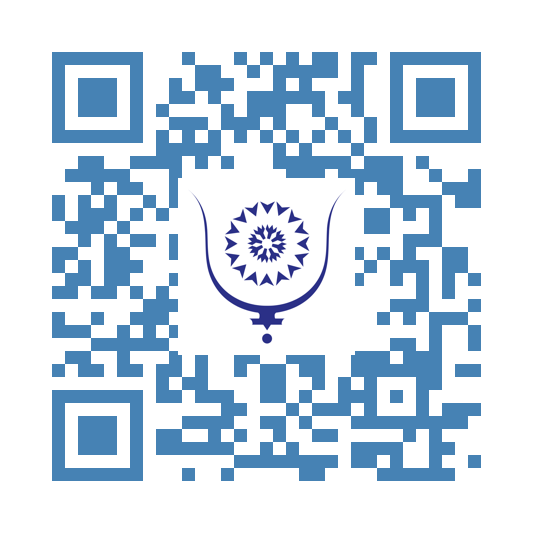Moroccan Sahara: The Algerian Lock Under American Pressure... 986
For half a century, Algeria's military power has sought neither to definitively end the Sahara conflict nor to truly satisfy the Polisario's claims. The central goal is perpetuating a *controlled status quo*, sufficiently conflictual to remain useful but well-contained to avoid escalation.
**In this logic, the Polisario is not an end in itself, but an instrument: a regional pressure proxy, activated or muted according to Algiers' strategic needs. Its leaders are mere officials on a mission, and the detainees in the camps no more than accomplices.**The aim is neither to build a viable state in the south nor to secure a total diplomatic victory, but to maintain low-level permanent destabilization in the region. A cynicism all too evident in a "frozen" yet profitable conflict for the Algerian regime. It sustains permanent strategic tension with Morocco, effectively blocking any real Maghreb integration. It justifies ongoing militarization and massive defense budgets in the name of a lasting threat. It nurtures the narrative of an external enemy, useful for diverting attention from internal economic, social, and political blockages.
*In this framework, Morocco becomes a "structural enemy," not because it poses an objective existential threat, but because the Algerian system needs a designated adversary to cement internal cohesion and channel popular frustrations. The imaginary enemy as a method of governance.*
The image of an expansionist and aggressive Morocco forms one of the pillars of Algeria's official discourse. It installs constant psychological pressure: externally, a neighbor portrayed as threatening; internally, the proclaimed need for strong power and an omnipresent security apparatus.
This setup is not conjunctural; it is inherent to the regime's nature. In this political architecture, full and complete normalization with Rabat would be counterproductive, as it would deprive the military power of a central lever of legitimation. Some consider it suicidal for the regime.
Thus, even when a "managed freeze" seems to settle in, as recently described by former Mauritanian Foreign Minister Ould Bellal, it is not a step toward peace, but a modality for managing the conflict. The status quo is adjusted, modulated, never abandoned.
**This is where Washington becomes a true accelerator of the dossier. President Trump having made conflict resolution the nodal point of his term.**
The Mauritanian reading is lucid on one point: the dossier only moves when Washington gets directly involved. Ould Bellal, a seasoned observer, emphasizes that "the direct American presence in recent meetings" marks a notable evolution from mere principled support for the UN process. The US has broken with its former posture.
This dynamic confirms a strategic reality: the conflict's center of gravity is neither in Tindouf, nor in Laâyoune, nor even in Nouakchott, but in Algiers. This is what American officials have fully grasped. The repeated visits by Massad Boulos to Algiers, along with his firm yet coded statements, systematically recall the American line: support for a realistic political solution affirming Moroccan sovereignty over the territories; insistence on regional stability and Algiers' involvement as a stakeholder.
*The implicit message is clear: without constructive engagement from the Algerian power, no lasting progress is possible, regardless of the UN framework or negotiation format.*
What of Mauritania, between neutrality and vulnerability? It too is a stakeholder in the talks. Ould Bellal recalls that his country is "objectively concerned" by the conflict's outcomes, particularly due to the Lagouira area and the security and economic stakes linked to Nouadhibou. Lagouira indeed emerges as a strategic lock, both for Mauritania's security depth and for the configuration of Atlantic trade corridors.
His proposal to organize an international conference aimed at clarifying and legalizing Mauritania's "positive neutrality" reflects acute awareness of the risks: a prolonged and instrumentalized conflict weakens the entire Sahelo-Maghreb continuum. Nouakchott knows the Algerian status quo is not neutral; it shapes regional balances and can turn into a factor of diffuse destabilization. It has been since 1976. If there is a lock here, it is indeed Algerian.
At the end of the current sequence, the diagnosis is clear: the central problem is in Algiers, and a decisive part of the solution as well. As long as Algeria's military power views the Sahara as a lever for internal management and regional projection, no purely UN dynamic will suffice; the Polisario will remain a tool, not a sovereign decision-making actor.
Under these conditions, only sustained, coherent, and if necessary coercive American pressure can alter Algiers' strategic calculus. Otherwise, the "managed freeze" evoked by Ould Bellal risks turning into diplomatic eternity, where the process's form changes, but the blocking logic persists. A kind of near-mathematical constancy.
**The status quo is not an accidental impasse: it is an assumed policy. And as long as this policy remains profitable for Algiers, the conflict will stay suspended, not for lack of a solution, but for lack of will from the true decision-maker.**
To break the lock, Washington is multiplying pressures on Algiers. *The latest is appointing a chargé d'affaires in Algiers, not an ambassador.* The chargé d'affaires status allows marking a form of "under-calibration" of representation, which can be interpreted as reflecting tensions over sensitive dossiers: Sahara, rapprochement with Moscow, counterterrorism; without escalating to open crisis.
It is a signal from Washington showing that the relationship with Algiers is important, but not to the point of immediately dedicating a full ambassador while certain political adjustments are not made. Chevron will certainly do business with Sonatrach, but in politics, that is not enough. Algiers must move to earn American diplomatic trust: Trump's order.
**In essence, the conflict is not a matter of maps or revolutionary slogans. It boils down to a simple equation: Algiers feeds on the status quo, but under President Trump's impetus, the "Sahara problem" will cease to be a historical drama to become what it should always have been: a settled dossier. The lock is about to break.**
































